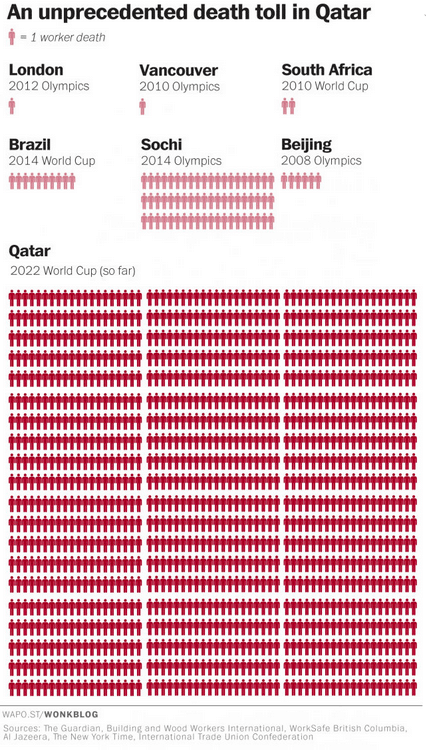I reclined my seat as my sister opened the sunroof. We were parked at the side of the road, waiting for my niece to get out of school. We chatted for a few moments before she asked me a question I’ll never forget: “Why do you want to work with poor people?”
Like many Christians, I had developed an interest in serving the poor. Although I realize there are poor people everywhere, including in the United States, I am referring to those who live in extreme poverty. I’m referring to people who are affected by structural problems such as violence, oppression, corruption and exploitation.
I had spent some time working overseas in such places and was preparing to attend graduate school to learn more about what it means to help.
I truly believe it is noble and Godly to want to help the poor. Jesus tells us to give to the poor (Matthew 19:21) and to be generous to the poor (Luke 11:41), and so we know it must be important.
Unfortunately, there is no foolproof guidebook on exactly how to help. While the desire to help is inherently good, it can sometimes be misguided and have heartbreaking consequences. As many development workers, missionaries, scholars and authors have discovered, efforts to help the poor have often resulted in disempowerment and dependency.
Mistakes are good for growth and improvement. We shouldn’t stop trying to help just because so many efforts have failed. We shouldn’t even stop trying when our own efforts have failed. We could often use a fresh take on what it means to help.
If you want to go out and help the poor, here are three ways you can do so:
Challenge your perceptions of poverty.
Before you even go anywhere, ask yourself this question: What does the word “poor” really mean, anyway?
Is it based on income and material possessions? If so, do those two factors form the only basis for the definition, or do psychological, social and spiritual aspects also have a place?
In 2009, Dr. Ostwald and her team of researchers and graduate students carried out a research project called “A Deeper Look at Poverty.” In various countries in Africa and Asia, they found that the people we define as poor have very different definitions of poverty than we do. Many of them were offended at being regarded as poor and instead defined poverty in terms of assets such as cows and land, knowledge, motivation and social capital.
Language is powerful, and so are the ideas and symbols we attach to certain words. For decades, organizations have been using certain types of images in fundraising, and if we’re not careful, those images can define groups of people we’ve never even met. If your understanding of poverty is based only on what the media tells you, you probably won’t have much to offer.
The reality is that many of the people we think of as poor don’t sit around looking destitute or like some stereotypes we may assign to poverty. They lead lives very similar to our own. They work and provide for themselves and their families as best they can. They laugh, cry, talk, play and eat with people they love. They have hopes and dreams, just like anyone else.
Realize that these communities have as much to offer you as do to them–if not more.
If you think you are going to save people or that you have all the right answers and ideas, think again. I can guarantee you one thing: Once you get your feet on the ground, you will notice a transformation taking place, but it will be in your own heart and mind.
To witness what you’ve thought of as poverty your whole life is astounding. You will see things you can hardly understand. For example, you will see families of eight living in huts that seem too small for one. You will witness colleagues and friends getting malaria regularly but regarding the disease as similar to that of the common cold. You will wonder how people can find any reason to enjoy life, but you will notice how much they revel at being together, sharing meals, celebrating, singing and dancing, encouraging one another, working and creating solutions to problems, and praising God in the midst of incredible suffering.
None of it will make sense at first, but soon you will understand it’s because your preconceived notions are being shattered. Economic poverty has a way of making you recognize the poverty within yourself. Poverty challenges your ideas around wealth and consumption and materialism. Being in these communities helps you understand the possible repercussions of the individualism our culture touts, such as a lack of community, loneliness and isolation. It challenges your faith and your measures of joy and hope and love.
Go with a spirit of listening and learning.
A South Sudanese man started a conversation with me one day as I sat in the Juba International Airport’s departure lounge. We got onto the topic of foreign aid, and he said his people needed outsiders to keep helping. I asked him if he was sure. I wasn’t sure if I believed that anymore.
His answer gave me pause. He said we, as foreigners, should act as counselors. We don’t need to come in with our ideas so much as we need to be sounding boards to the many great ideas that already exist in the minds of his people. We don’t need to be experts or advisers, but rather people who are great listeners and who are willing to have ideas bounced off of them.
As an outsider, you can have a valuable contribution to make. It just might not be the contribution you thought it would be. As the man at the airport illuminated, you are in a unique place to view the situation from a different perspective. You are removed and detached from their situation. This allows you to be a neutral observer. It allows you to really see the person, ask questions when necessary and nod your head in understanding as the issues at hand are worked through.






















